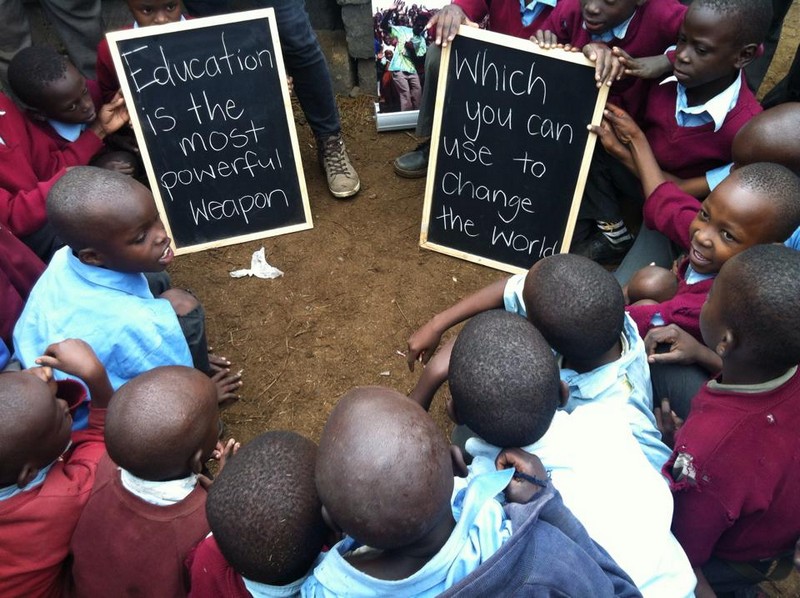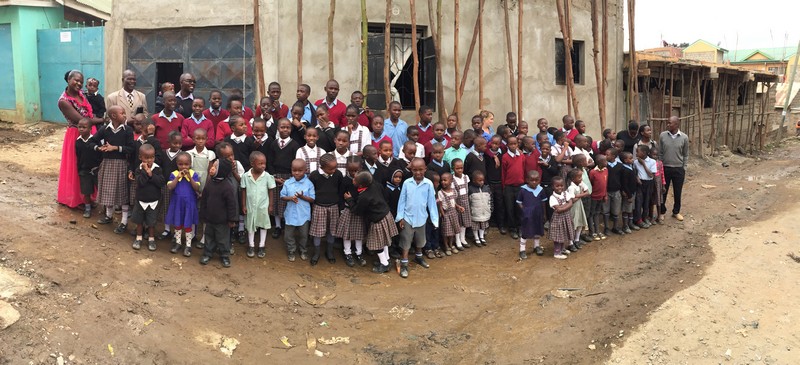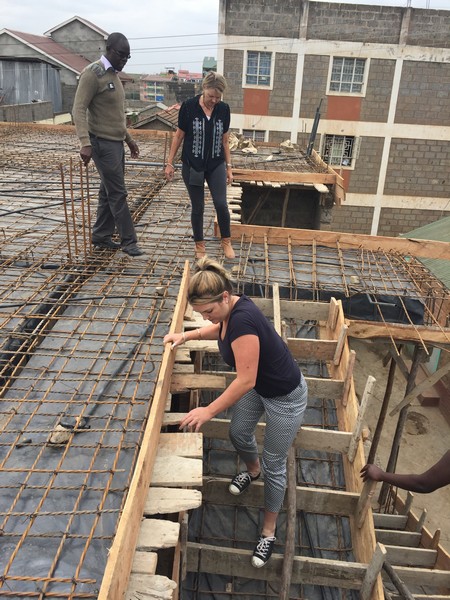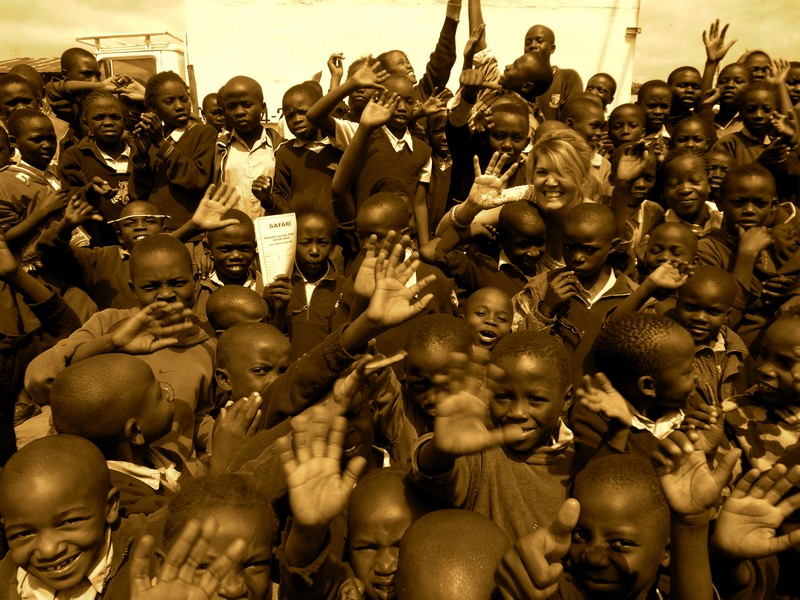A Hong Kong grassroots initiative has set out to build a new primary school in Nairobi’s Korogocho slum, striving to develop a safe and secure premises to educate over 200 children. As the project has evolved over the last three years, it has also shown the value in building ‘locally’, engaging the community, resident suppliers and tradesman, as PRC learns.

KYEEDA School
Based in one of Nairobi’s largest slum areas, KYEEDA School was founded in 2007 and stands for Korogocho Youth Education and Economic Development Association.
Established by a Korogocho resident, the project looked to provide a facility for the local children who were unable to access formal education. As government school placements are limited due to capacities and private schooling is unaffordable for most, more than fifty percent of children in the area are left to their own devices.
Consequently, KYEEDA School quickly absorbed this demand, filling the gap as a vital primary school facility for the local community.
Humble Beginnings

The small school came to the attention of Hong Kong resident Stephanie Croagh in 2012; an early childhood teacher who was volunteering in a teaching placement at the time. Witnessing the difficulties faced by the school as it tried to operate day-to-day, with constant threats from the landlord of closure and rent increases, minimal income support and the building’s lack of security, Croagh was aware that without intervention, the school would not continue.
Croagh commenced her first fundraising drive to purchase doors and windows for the temporary school in 2012. It was through this initial effort that she recognised the potential to access wider support which would help develop KYEEDA School on a much larger scale.
Collaborating with Joshua Otieno, the School’s Founder and Principal, the full redevelopment project was initiated with the vision of building a new school at a privately-owned, permanent location.
A New Lease of Life

The KYEEDA School Redevelopment project has now been officially underway since Februar y 2013 and has come a long way in its journey towards realising a new school. After formalising a Committee, the project is being actively managed by a group in Hong Kong and Croagh continues to make regular trips to Nairobi to keep up to date with the progress.
Successful fundraising initiatives and events resulted in a plot of land being purchased by the KYEEDA Committee in June 2014.
The building plot was purchased in Lucky Summer Estate, an area adjacent to Korogocho slum which provides additional security to the project. Building of the permanent KYEEDA Lucky Summer School premises commenced shortly after the land acquisition. By February 2015 the first storey of the school was constructed, complete with running water and toilets, and classes commenced.
With the option to develop a multi-storey building due to the site location, the decision was made to add a second storey. While still currently under construction, this will allow the student body to grow and enable the school to comfortably accommodate more than 300 children once complete.
So far the Committee has raised over US$35,000 to support the entire cost of the project and is seeking further funds to complete the second storey.
Building with the Community
Since travelling frequently to Kenya, Croagh has established strong ties within the community and is being supported by a network of local organisations, Korogocho elders, lawyers and NGO representatives.
These relationships have been a major influence on the progression of the project. When seeking builders, suppliers, tradesman and on-the-ground support, it is this wide group that the project is able to rely on. Over the last 12 months, the school has been able to give back to these supporters, generating income and opportunities for these local businesses.
Involving the community has also meant that KYEEDA Lucky Summer School is protected from vandalism and looting, which had been common at the previous premises. Built with their support, the community has a vested interest in seeing the school prosper.
The Future

Without the threats of closure or limited by its financial issues, KYEEDA Lucky Summer School is able to devote its full energy and resources to the students. Currently two thirds of the students pay a small fee and this allows the school to support the other third of the student body that are unable to afford to do so.
The school is part of the Kenya Certificate of Primary Education (KCPE) system, and each year the students sit the national examinations, scoring higher than the national average on most occasions. As the new school increases its student intake , more children from Korogocho and Lucky Summer are afforded a solid primary school education which sets them on a path for further opportunity.
Get Involved
If you would like to the support the KYEEDA Lucky Summer School project, please contact Committee Leader, Stephanie Croagh. The school is still looking for assistance to complete the building work, fit-out the interiors and grow its inventory of educational supplies.
Stephanie Croagh, KYEEDA Committee Leader
You can also follow KYEEDA Lucky Summer School progress via:












